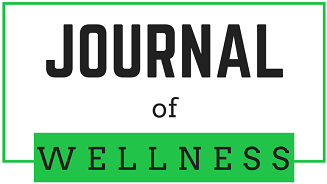
Funder
Stanford BeWell
Conflict of Interest
The author(s) have no conflict of interest to declare for this work
Abstract
Introduction: Recurrent exposures to adverse patient events, including death, affect all members of the care team and can have long-term effects on clinician performance, personal well-being, and patient safety. Recognizing the impact of patient deaths on care teams is essential to mitigating potential risks of increased clinician burnout. We share the outcomes of a three-month pilot wellness intervention implemented at a busy academic hospital, directed explicitly toward resuscitation care teams managing patients who die from traumatic injuries.
Approach: A collaborative group from Stanford’s Trauma Surgery, Emergency Department (ED), and well-being leadership developed an integrated workflow to connect with care team members after a resuscitation ending in patient death. Our 4-pronged approach included 1) an immediate pause and 2) a defusion session, 3) a direct email communication to extend peer support and mental health resources, and 4) an invitation to monthly grief counselor-facilitated healing sessions. Engagement was measured based on email responses and healing session attendance. At 3 months, 8 trauma mortalities were recorded, with 120 corresponding email communications sent to care team members. The average event-to-distribution time was 84 hours (SD = 52.9 hours). A total of 18 unsolicited positive email responses were documented, in addition to the reception of verbal in-person feedback. Three monthly counselor-facilitated healing sessions occurred with 15, 10, and 9 individuals in attendance, respectively.
Discussion: Trauma-associated death is not uncommon, yet it often occurs without organized support systems for care teams. Our 4-pronged approach demonstrated the feasibility and considerable interest of medical professionals in a team-based and institution-driven effort to streamline resources and create spaces for facilitated peer-to-peer discussions. Further investigation is needed to understand the sustainability of offering consistent opportunities for healing support across all healthcare professions.
DOI
10.55504/2578-9333.1232
Recommended Citation
Au Hoy, Sydni; Arbaugh, Carlie J.; Bungo, Caitlin P.; Deutsch, Amanda J.; Chow, Bonnie E.; Gallegos, Kristen; Alansalon, Nerissa; Jisrawi, Emmanuel; Alvarez, Al’ai; Gurland, Brooke; and Forrester, Joseph
(2024)
"Team-Centered Care after Trauma Patient Death: Promoting Healers’ Healing by Humanizing Our Roles,"
Journal of Wellness: Vol. 5
:
Iss.
3
, Article 1.
DOI: https://doi.org/10.55504/2578-9333.1232
Available at:
https://ir.library.louisville.edu/jwellness/vol5/iss3/1
Included in
Emergency Medicine Commons, Other Mental and Social Health Commons, Surgery Commons, Trauma Commons
